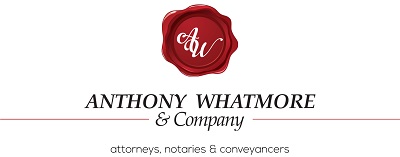Business Essentials - Why You Need a Shareholders’ Agreement, and How to Structure It
Whether you are forming a new company or buying shares in an existing one, a formal shareholders’ agreement, tailored to suit your particular situation and needs, is essential.

What is a shareholders’ agreement?
It’s a contract between shareholders outlining the rights, responsibilities, and obligations of each shareholder, it provides a framework for the governance of the company, and it ensures a clear understanding between the shareholders about its management, operation and control. It’s not a legal requirement, but not having one is a recipe for uncertainty and dispute.
Which brings us to…
Why you need one
Here are some of the reasons why it’s a “must-have” and not a “nice-to-have” -
- The Memorandum of Incorporation (MOI) is not enough: Every company must have a memorandum of incorporation (MOI) setting out amongst other things the “rights, duties and responsibilities of shareholders, directors and others within and in relation to a company” but you should always complement its provisions to suit your particular needs and circumstances. Be careful here, the MOI will override any conflicting provisions in your shareholder’s agreement.
- Dispute avoidance and management: By setting out the agreed shareholder relationships and responsibilities, a shareholders’ agreement will greatly reduce the risk of bitter, disruptive and expensive disputes arising. Where disagreements do arise, reference to the agreement should help diffuse them before they become a major issue. Agree processes for dispute resolution.
- Avoidance of deadlock: Deadlocks can occur when shareholders are unable to reach a decision on important matters such as the direction of the company or the appointment of new directors. Deadlocks will inevitably hurt the company and could even result in failure and liquidation. A formal shareholders’ agreement reduces the risk of deadlocks by providing a clear set of rules for decision-making and resolving disputes.
- Clarity of roles and responsibilities: Your agreement should define the roles and responsibilities of each shareholder, which can be especially important in companies where the shareholders are also involved in the day-to-day management of the company. This will help to ensure that each shareholder is clear about their obligations and the consequences of not complying with them, and it will help to prevent misunderstandings that may arise from overlapping responsibilities.
- Flexibility: Make sure that your agreement is tailored to the specific needs of the company and shareholders. This allows it to be flexible enough to accommodate changes in the company’s structure and operations, while still providing the necessary protection and clarity to shareholders.
- Protection of minority shareholders: Sometimes, majority shareholders have different goals and objectives than the minority shareholders. A formal shareholders’ agreement can provide protection to the minority shareholders by ensuring that the company operates in a fair and equitable manner. In doing so it reduces the risk of dispute by setting out the voting rights and decision-making powers of each shareholder.
What should be in it?
As we said above, your agreement should be tailored to your particular needs, so professional advice is essential to ensure that your agreement is legally binding and protects the interests of all parties involved. You will likely to be advised to address at the very least the following aspects –
- How loan accounts, profit sharing, payment of dividends, salary and fringe benefit structures and the like will work
- Who will manage the company and its business activities, and how
- Decision-making processes, with reference to meeting requirements and voting
- Roles and responsibilities, powers to make executive decisions and to bind the company
- Confidentiality requirements, conflict of interest rules, restraints of trade and the like
- Conflict resolution procedures
- Valuation and sale of shares, rights of first refusal etc
- The list goes on – every company and every set of circumstances will be different, so brainstorm other issues to be included with your fellow shareholders, other stakeholders, and your legal advisors.
Keep everything as short, simple and practical as possible!
Provided by Anthony Whatmore & Company

© DotNews. All Rights Reserved.
Disclaimer
The information provided herein should not be used or relied on as professional advice. No liability can be accepted for any errors or omissions nor for any loss or damage arising from reliance upon any information herein. Always contact your professional adviser for specific and detailed advice.






